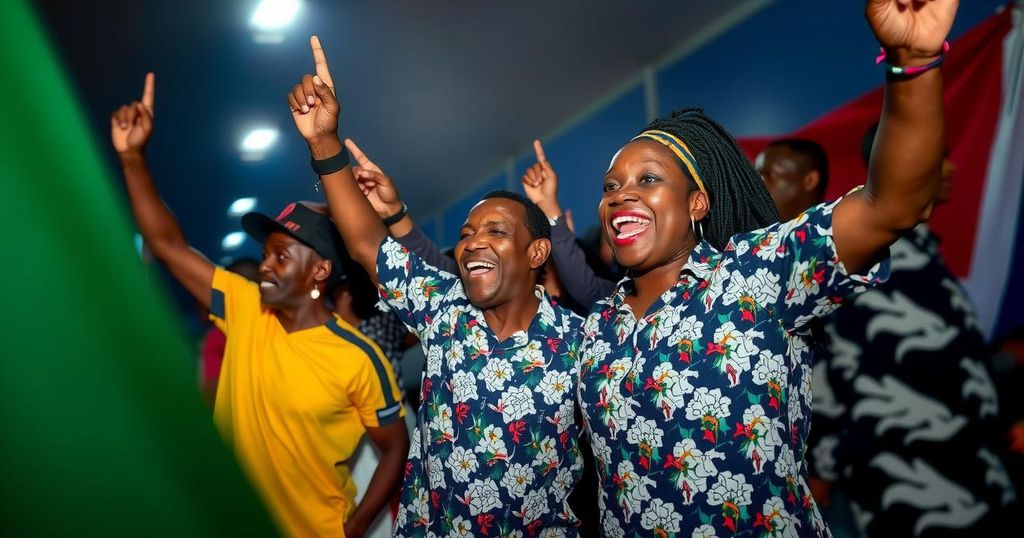Mauritius Opposition Coalition Secures Landslide Victory in Elections
Mauritius’s opposition coalition has won all parliamentary seats in a landslide election, decisively rejecting the ruling government led by Prime Minister Pravind Jugnauth. The victory allows for the reinstatement of Navin Ramgoolam, with elections marred by corruption allegations against Jugnauth’s administration. This marks a significant shift in the political landscape of Mauritius, a stable democracy since independence in 1968.
Mauritius’ opposition coalition has achieved a remarkable victory in the country’s parliamentary elections, claiming all available seats in a stark dismissal of the current government. As the results unfolded across constituencies, it became evident that the governing coalition, led by Prime Minister Pravind Jugnauth, would not secure any of the 62 seats, prompting Jugnauth to concede defeat prior to the final tally. The successful Alliance for Change coalition heralds the return of Navin Ramgoolam, a former prime minister who served in multiple terms from 1995 through 2014. Prime Minister Jugnauth, who sought a new five-year mandate since assuming office in 2017, faced significant challenges. His administration was marred by corruption allegations following the surfacing of recordings involving politicians and business figures. Acknowledging the electorate’s decision, Jugnauth stated, “The population has decided to choose another team. I wish good luck to the country.” While official results are pending for two additional seats in Rodrigues Island, the opposition has already claimed all 60 already declared seats. An additional eight members will also be nominated, resulting in a total of 70 parliamentary positions. This election marked the 12th since Mauritius achieved independence from the United Kingdom in 1968, with over 1 million registered voters participating. Known for its stable democracy and robust economy, Mauritius continues to evolve within the realms of finance, tourism, and agriculture, positioning itself as a significant player in the region.
The electoral victory of the opposition coalition in Mauritius is a pivotal moment in the nation’s political landscape, signaling a shift in leadership following a period of controversy for the outgoing government. Established as a stable democracy in the Indian Ocean, Mauritius has transitioned through numerous elections since gaining independence in 1968. The unexpected defeat of Prime Minister Jugnauth’s coalition illustrates widespread dissatisfaction with the current administration, particularly regarding allegations of corruption and governance issues. The return of Navin Ramgoolam to the prime minister’s office may bring changes to the political dynamics and economic strategies of Mauritius.
In summary, the recent elections in Mauritius have resulted in a significant triumph for the opposition coalition, underscoring the electorate’s response to the prevailing governance issues. With the overwhelming win, the Alliance for Change coalition will reinstate Navin Ramgoolam as prime minister, while Prime Minister Jugnauth’s acknowledgment of defeat reflects a broader discontent with his administration’s handling of corruption scandals. As the nation looks forward to this new chapter, the implications for governance and policy remain a focal point for future discussions.
Original Source: abcnews.go.com




Post Comment